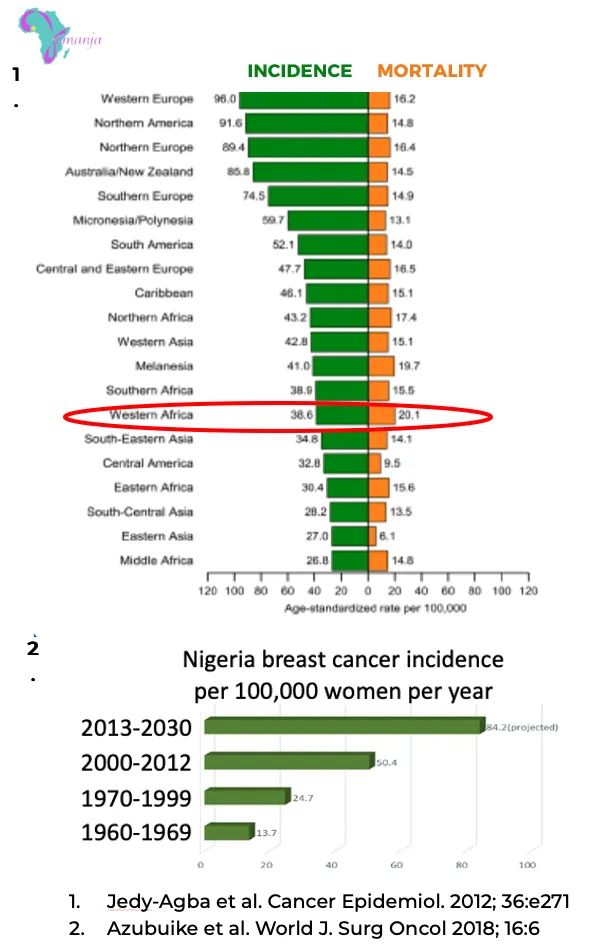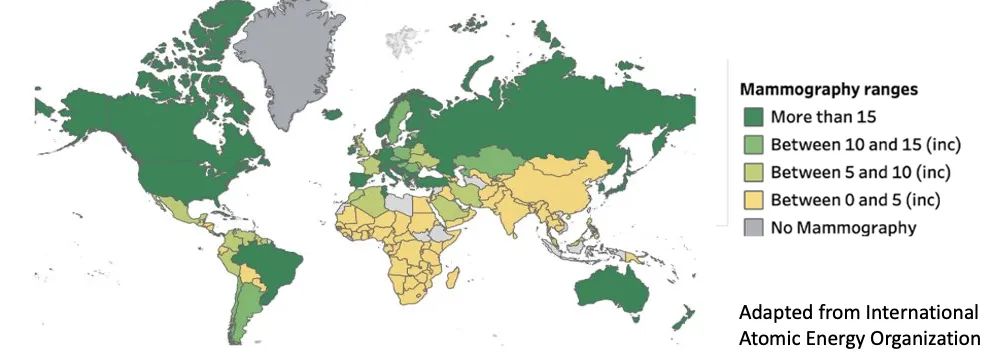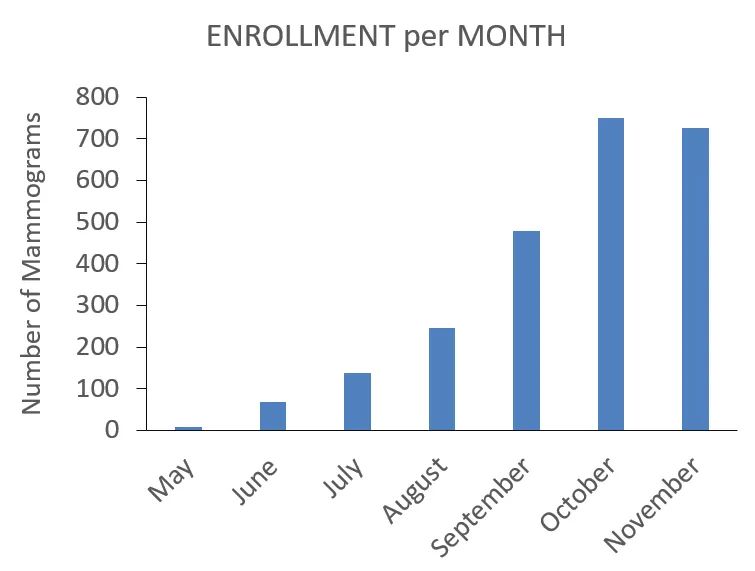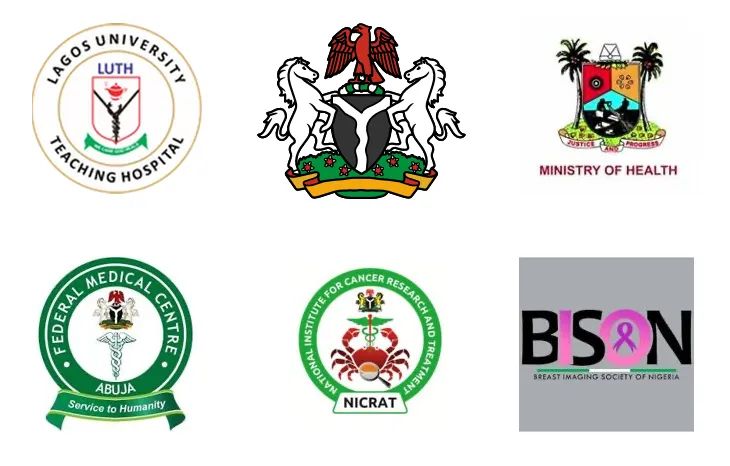Breast Cancer Early Detection Program

Overview
- In Nigeria, despite an incidence rate that is lower than in Western countries, breast cancer mortality increased by 224%, between 1990 and 2019 compared to the US where it decreased by 58% during the same interval.(Ref)
- The steadily increasing mortality rate in Nigeria (and her neighbors in sub-Saharan Africa) is due to increased incidence1, lack of early detection programs, and therefore late-stage presentation of the disease, with less likelihood for cure.
- Mammographic screening is the only proven effective approach for early detection of breast cancer, yet most women in sub-Saharan Africa do not have access to mammography.

Problem Statement: Access to Mammography
- Annual screening mammograms are generally unaffordable in resource-constrained countries in sub-Saharan Africa
- Improved access to screening mammography will reduce the proportion of women presenting with advanced breast cancer and reduce the mortality from the disease.
- Deep learning algorithms developed from large databases of mammograms in advanced countries have recently shown that women at high risk can be identified after a single screening mammogram. Thus, screening frequency can be adjusted by risk, providing a cost-effective approach to mammography for resource-poor settings.
- However, mammographic profiles of Nigerian women with which to train these models are lacking.
Yemanja’s solution is to generate, for the first time, such a dataset

Who We Are
Yemanja Cancer Care Initiative, an IRS 501(c)(3)-designated nonprofit organization founded in 2020, is dedicated to saving women’s lives through early breast cancer detection/diagnosis and treatment.
Our Approach
Screening and Early Diagnosis
In the first 2 years, utilizing our mobile mammography service, we will screen a cross-section of 70,000 women in the 6 Nigerian geopolitical zones. Participants will thereafter undergo repeat mammography every 1.5 to 2 years for the 6 year, longitudinal component of the project.
Immediate Benefit for Participants: Timely Treatment
Women who are diagnosed with breast cancer (after ultrasound and biopsy of suspicious mammographic lesions) will be referred to established facilities for treatment based on international guidelines. We anticipate that up to 300 women will require treatment in the course of this project.
Long Term Benefit for Nigerian Women: Risk Prediction
Data will be input to train deep learning algorithms for risk prediction from their initial screening mammogram.
This tool will provide the foundation for a cost-effective public health measure to reduce breast cancer mortality

Laying a Foundation: Yemanja's Pilot Study
- We have conducted a feasibility pilot study using a single digital mobile mammography machine in Lagos state
- We have learnt from our early experience with stationary equipment at collaborating diagnostic facilities in Lagos and Abuja that taking our service to the people with a mobile unit is essential to achieve meaningful coverage and ensure image quality.
- The figure at left illustrates the enrollment rate achieved with our single mobile instrument since its introduction in May 2024, increasing to our current, sustainable screening rate of ~700 women per month
Strategic Plan
Short-term Term Goals (2 years)
SCALE
Expand the number of mobile mammography units from current single instrument to at least one machine in each of the 6 geopolitical zones within Nigeria, to obtain mammograms from ~70,000 -100,000 women
COLLABORATE AND TREAT
Continue our partnership with Lagos University Teaching hospital (and expand this to other academic cancer centers in Nigeria) for treatment referral according to international guidelines. Provision of funds for treatment will be from the Vulnerable Persons Program of the Nigerian National Health Insurance Scheme.
Long-term Goals (3 to 6 years)
ANALYZE AND IMPLEMENT
Initiate the prospective longitudinal part of the study to acquire sequential mammograms to be used in predictive model development.
Partner with US academic groups at the forefront of AI in breast imaging to train a predictive model for breast cancer risk in Nigerian women
Work with the Nigerian Federal Government to initiate the development of public health implementation plan utilizing our risk model.

Our Collaborators
National Institute for Cancer Research and Treatment (NICRAT) in Nigeria
Clinton Health Access Initiative (CHAI)
Lagos State Ministry of Health
Lagos University Teaching Hospital
Breast Imaging Society of Nigeria
Faith-based organizations and other NGOs
Cancer advocacy groups in Nigeria
.png)